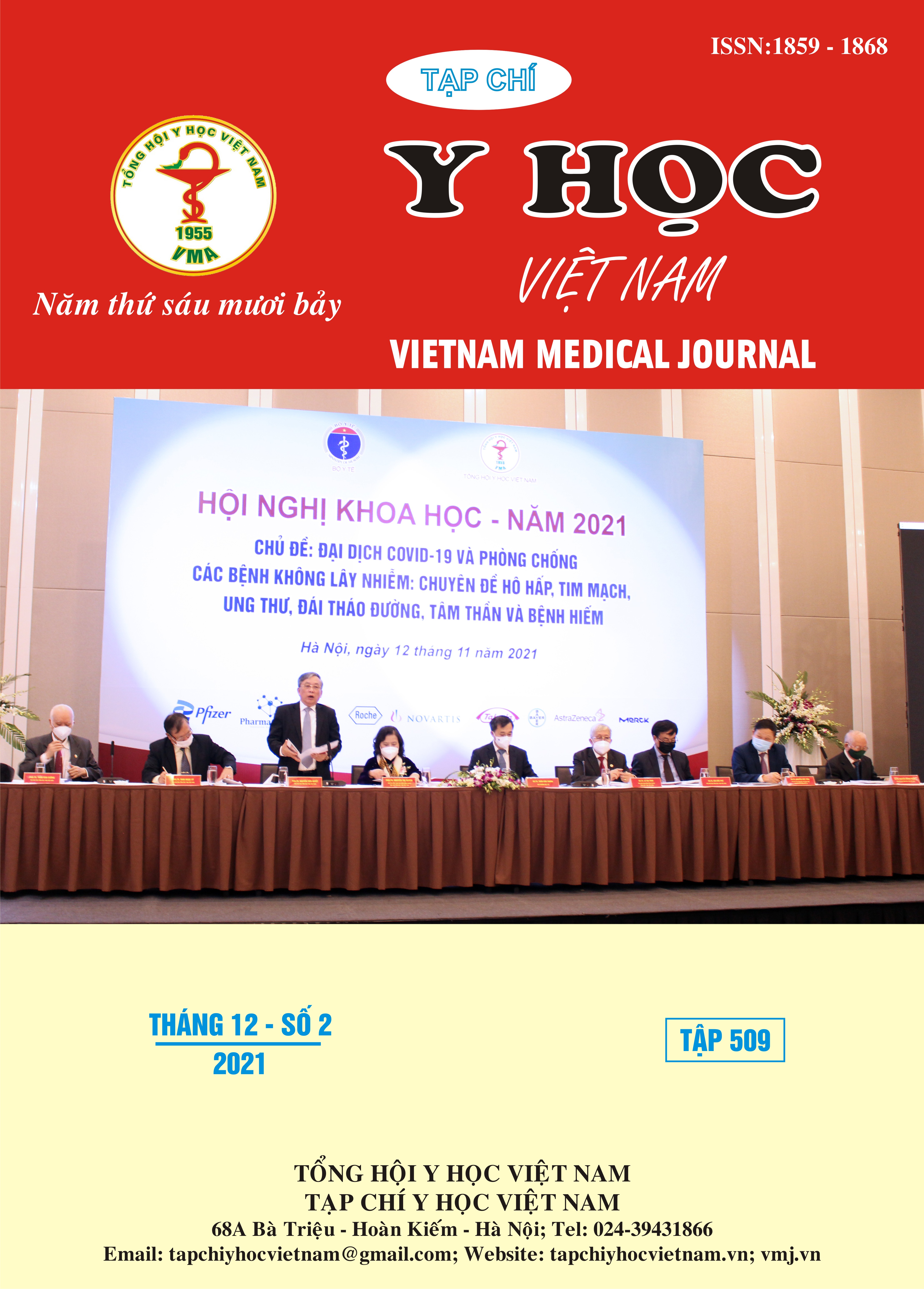SLEEP QUALITY DURING COVID-19 SOCIAL DISTANCING IN STUDENTS AT UNIVERSITY OF MEDICINE PHAM NGOC THACH
Main Article Content
Abstract
Purpose: To assess the sleep quality in students. We also considered the effects of COVID-19 home confinement on sedentary behavior and smartphone use. Materials and method: It was a descriptive cross-sectional study at the University of Medicine Pham Ngoc Thach, HCMC, Vietnam. Data was collected in medical students from first to 6th years. Participants completed an anonymous web-based survey that includes questionnaires about sleep and about their physical activity, sedentary behavior and smartphone use. To measure sleep quality, we used the Pittsburgh Sleep Quality Questionnaire Index (PSQI). Results: Out of 4677 medical students at the University of Medicine Pham Ngoc Thach, 874 participated in our survey. More than half of participants had poor quality of sleep according to PSQI. Many students went to bed later than midnight and spent time with smartphones. Conclusion: This study revealed that during the COVID-19 outbreak, behaviors changed. Students spent time using the smartphone but less engaging in physical activity. They went to sleep and got up too late but their sleep quality was bad. These findings may be important to make recommendations, including lifestyle modifications.
Article Details
Keywords
Students, smartphone, sleep quality, PSQI
References
2. Altena E, Baglioni C, Espie C, et al. Dealing with Sleep Problems During Home Confinement Due to the Covid-19 Outbreak: Practical Recommendations from A Task Force of the European CBT-I Academy. J. Sleep Res. 2020 Aug; 29(4): e13052. doi: 10.1111/jsr.13052.
3. Daniel J.Buysse, Charles F.ReynoldsIII, Timothy H.Monk, Susan R.Berman, David J.Kupfer. The Pittsburgh sleep quality index: A new instrument for psychiatric practice and research, Psychiatry Research. 1989; 28(2): 193-213.
4. Grimaldi-Puyana, Moisés; Fernández-Batanero, José M.; Fennell, Curtis; Sañudo, Borja. 2020. Associations of Objectively-Assessed Smartphone Use with Physical Activity, Sedentary Behavior, Mood, and Sleep Quality in Young Adults: A Cross-Sectional Study Int. J. Environ. Res. Public Health 17(10): 3499. https://doi.org/ 10.3390/ ijerph17103499
5. Hindmarch I, Rigney U, Stanley N, Quinlan P, Rycroft J, Lane J. A naturalistic investigation of the effects of day-long consumption of tea, coffee and water on alertness, sleep onset and sleep quality. Psychopharmacology (Berl). 2000 Apr; 149(3): 203-16. doi:10.1007/s002130000383. PMID: 10823400.
6. Ranjbar K, Hosseinpour H, Shahriarirad R, et al. Students' attitude and sleep pattern during school closure following COVID-19 pandemic quarantine: a web-based survey in south of Iran. Environ Health Prev Med. 2021 Mar 10; 26(1):33. doi: 10.1186/ s12199-021-00950-4.
7. Romero-Blanco C, Rodríguez-Almagro J, Onieva-Zafra MD, et al. Sleep Pattern Changes in Nursing Students during the COVID-19 Lockdown. Int J Environ Res Public Health. 2020 Jul 20; 17(14): 5222. doi: 10.3390
8. Sañudo B, Fennell C, Sánchez-Oliver AJ, et al. Objectively Assessed Physical Activity, Sedentary Behavior, Smartphone Use, and Sleep Patterns Pre- and during COVID-19 Quarantine in Young Adults from Spain. Sustainability. 2020; 12(15): 5890. https://doi.org/ 10.3390/su12155890.


